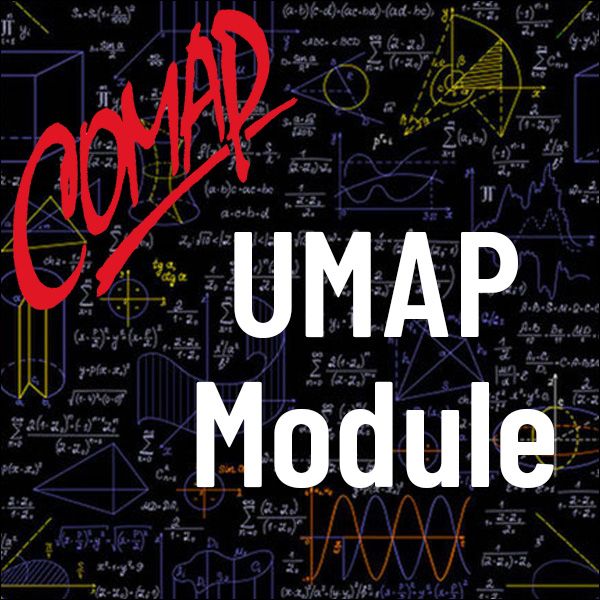Random Walks: An Introduction to Stochastic Processes (UMAP)
Author: Ron Barnes
In this module random walks are introduced by an example of a gambling game. The associated finite difference equation is developed and solved. The example is generalized and the general solution developed. Exercises introduce the idea of a fair game and other generalizations. The concept of expected gain and the duration of a game are introduced and their usefulness is demonstrated. Generalizations to Markov chains and continuous processes are discussed. Simulation and applications in the life sciences and genetics are noted. Exercises, a model exam, and solutions are given. An appendix and bibliography are included. Upon completion students should be able to: 1) recognize problems that will involve finite difference equations; 2) develop and solve some such problems; and 3) see some of the important applications of random processes and the value of applied mathematics in formulating solutions techniques.
Table of Contents:
1. INTRODUCTION
2. THE PROBLEM
3. EXAMPLES OF THE PROBLEM
4. THE MODEL
5. SOLUTION OF THE MODEL UTILIZING OUR EXAMPLE
6. COMMENTS
7. GENERAL SOLUTION
8. SOME IMPLICATIONS OF THESE SOLUTION FORMULAS
9. EXPECTED GAIN
10. COMMENTS ON THE PREVIOUS MODELS
11. DURATION OF GAMES
12. GENERALIZED APPLICATIONS AND AREAS FOR FURTHER INVESTIGATION
13. MODEL EXAM
14. SOLUTIONS TO THE EXERCISES
15. SOLUTIONS TO THE MODEL EXAM
APPENDIX: FINITE DIFFERENCE EQUATIONS
BIBLIOGRAPHY

Mathematics Topics:
Application Areas:
Prerequisites:
You must have a Full Membership to download this resource.
If you're already a member, login here.